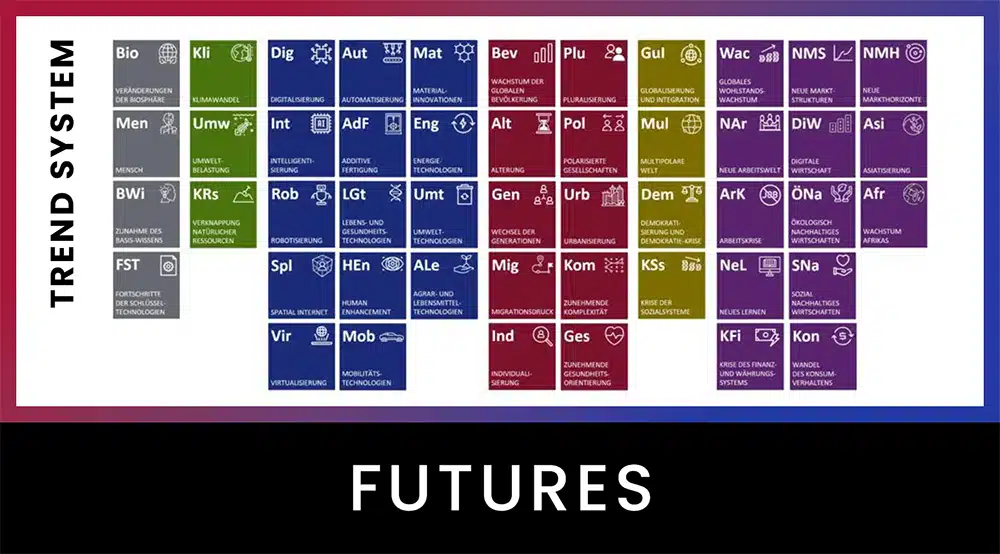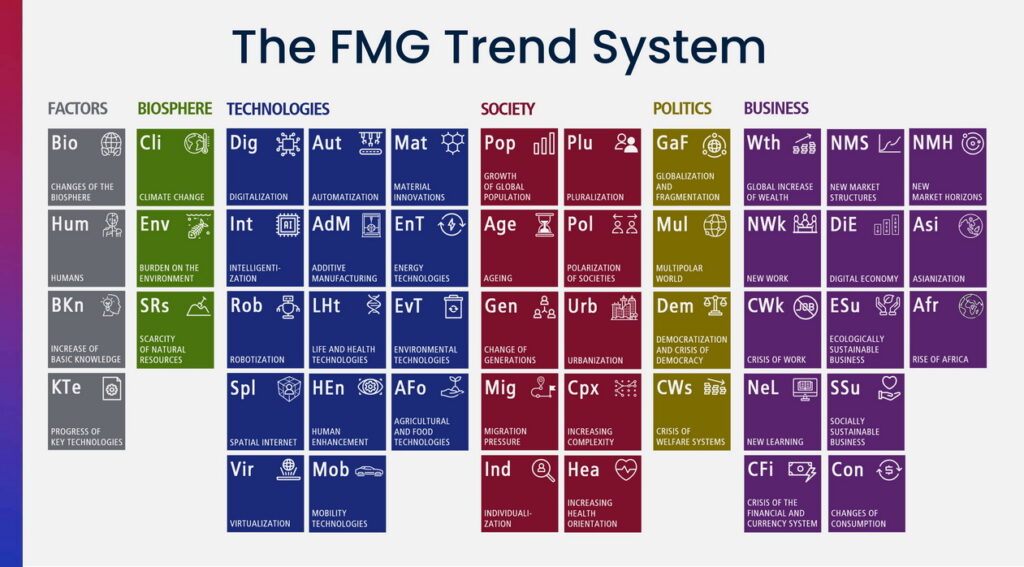Dr. Pero Mićić
For as long as I can remember, I’ve been told that you have to learn foreign languages to be successful in your career. This could prove to be bad advice in the future. The reason: AI translators are getting better and better! What does this mean for your profession and your business?
Problem
Many major problems around the world could be solved better, faster, more effortlessly and with fewer risks if the language of the partners were better understood.
Solution
Los Angeles-based Timekettle Technologies has developed an AI translator called a Hearable that can perform real-time translations. You say something in your native language and the device translates it into one of 40 languages. Simultaneous, that is, immediate and instantaneous. Your interlocutors do exactly the same and you hear their statement in German. The Hearable WT2 Edge needs only 0.5 seconds for the translation and has an accuracy of up to 95%. Timekettle use not only their own translation engine for this, but also other leading systems such as DeepL and Google.
The seven most spoken languages in the world are stored offline so that translation works without an Internet connection; soon many more languages will work without the Internet. Timekettle’s AI translator is not some crackpot vision of the future. The system already works today.
Trends
In the trend system, we are here with the trend Intelligentization, there with the subtrend NLP (Natural Language Processing), i.e. natural language processing by AI. And globalization plays a role.
Have you noticed the incredible advances translation engines have made in recent years? How excellent AI systems can already translate texts? The first computer translators appeared in the 1980s. We owe the latest leap in performance to neural networks, which have been used for translations for a few years now.
And did you see how perfectly Google Duplex made a hair appointment with someone over the phone back in 2018, without being noticed on the other end of the line?
And artificial intelligence is developing exponentially. We are still here at the low flat point of the famous S-curve. In three years, AI translators will not only be 20 or 30% better, but many times better. By several hundred percent. Hardly anyone can imagine how perfect translations and also simultaneous interpreting will be in ten years.
Time horizon for AI translators
How fast will the change happen?
Technical performance is increasing far faster than most can imagine today. The spread of such hearables as Timekettle will also develop exponentially, depending on prices and how quickly people change their habits.
My future assumption: Around 2030, automated interpreting will already be very widespread, and still growing strongly.
Advantages
- Language barriers still hinder international cooperation in companies, authorities and organizations, and also in politics. The better we understand each other, the faster and easier we can solve the great problems of humanity.
- Millions of people, especially schoolchildren, slog through conventional foreign language instruction. Too many of them never speak the foreign language well enough.
- Many companies remain below their potential because language barriers hinder internationalization.
- New markets are emerging for countless specialized machine translators.
Disadvantages
- People and companies that make a living teaching, translating and interpreting languages will see their market shrink. It will get smaller, software will do more and more of the work, but the market will not disappear completely, of course.
- Is cultural diversity being lost? I have been recommending for a long time that for professional reasons you should only learn English and do it as perfectly as possible. In the long run, learning other foreign languages and investing your lifetime to do so will simply not benefit you enough. Because translation systems today are already better than most foreign language learners can ever become, even if they have invested many hours, days and years in learning, often with great effort. The translation systems will beat you with ease. Soon to be available in all major languages. And at minimal cost.
Why still English despite AI translator?
Because this is the current and future lingua franca, the lingua franca that more and more people will speak as a second language. And because you may not always be able or want to have such a universal translator in your ear. Or, because every now and then the battery is simply empty.
So, perfect English, but no more learning other foreign languages, okay?
As a result, there are always protesting comments. One of them is: Oh no, languages will disappear. Already there are only 6500 languages left in the world, many are already dead and gone. The cultural heritage is irretrievably lost.
It is always fascinating to experience how people try to justify their emotional adherence to the usual with supposedly logical arguments.
Unfortunately, anyone who protests has not thought logically. My recommendation is not “learn only English and forget your mother tongue”. Languages are preserved because the number of native speakers is maintained. The foreign language learners play less of a role there. So this protest is already going nowhere.
The second typical protest argument is that every foreign language you speak gives you an additional perspective on the world. Then I read something like “well, my daughter studied in China and I don’t think that did her any harm”.
Yes, absolutely, I can only subscribe to that. Let’s quote Goethe: “How many languages you speak, so often you are human.” Or in other words: “You have as many lives as you speak languages”.
I know this myself. I was born in Belgrade, formerly Yugoslavia, now Serbia. Consequently, I speak what used to be called Serbo-Croatian. This is my mother tongue. Generously speaking, I speak and understand Serbian, Croatian, Bosnian and Montenegrin. Not because I’m so brilliant, but because it’s essentially one language, kind of like Austrian and German German. Please, my Balkan friends, stay calm now 😊. If you’re honest, you all get along great with each other. Linguistically, definitely. For me, at any rate, I have decided that all those countries in which a variant of this language is spoken count as my birthplace.
And yes, through this language I experience the world differently than without. When someone says AirPod, I have the association of “floor” with Pod, so it’s kind of like an “air floor”. A pretty funny performance. Salvador Dali would certainly have painted a surrealistic picture for this.
When I hear glass, I not only see the pane or drinking glass, but I also feel the connotation of voice, because that’s what it’s called in South Slavic: tvoj glas is your voice.
So, to clarify my recommendation: I said “for professional reasons”. No one should torture themselves in the future to learn French or Mandarin for professional reasons. It’s just too bad to waste your life for that, because you can never become as good as the translation and interpreting machines. And if so, then only in this one language. But if the sound of French excites you, you enjoy the melody of Italian, Mandarin creates an emotion of exoticism for you, you feel that Swahili expands your perception of the world, then – feel free – enjoy learning, reading, listening and speaking these languages. As a hobby or as linguistics, any language is meaningful and beautiful.
What opportunities do AI translators open up?
And now? What does this have to do with the future of your profession and business?
- Where do you have touch points with spoken or written foreign languages in your business model? Or where could you have them? Where can you use automated translators and interpreters? This goes for texts, for images, for video, for audio. In the future, you can internationalize and globalize virtually effortlessly and at minimal cost.
- Where do you invest money and effort in the future professionally useless training in foreign languages other than English? For yourself, for your employees, for your descendants? I would reconsider that.
- If you even make a living from teaching languages, translating and interpreting, it is now really high time that you develop a future-proof business model. Either by focusing on specialized areas or developing in a direction where translation machines remain permanently inferior to humans, such as in direct emotional and empathic communication with other people.
Follow these links as well:
► The Future Strategy Program for SMEs
► Free video crash course THE FUTURE OF YOUR BUSINESS
► BUSINESS WARGAMING for robust business and future opportunities
► KEYNOTES by Pero Mićić for your employees and customers
Have a bright future!


































